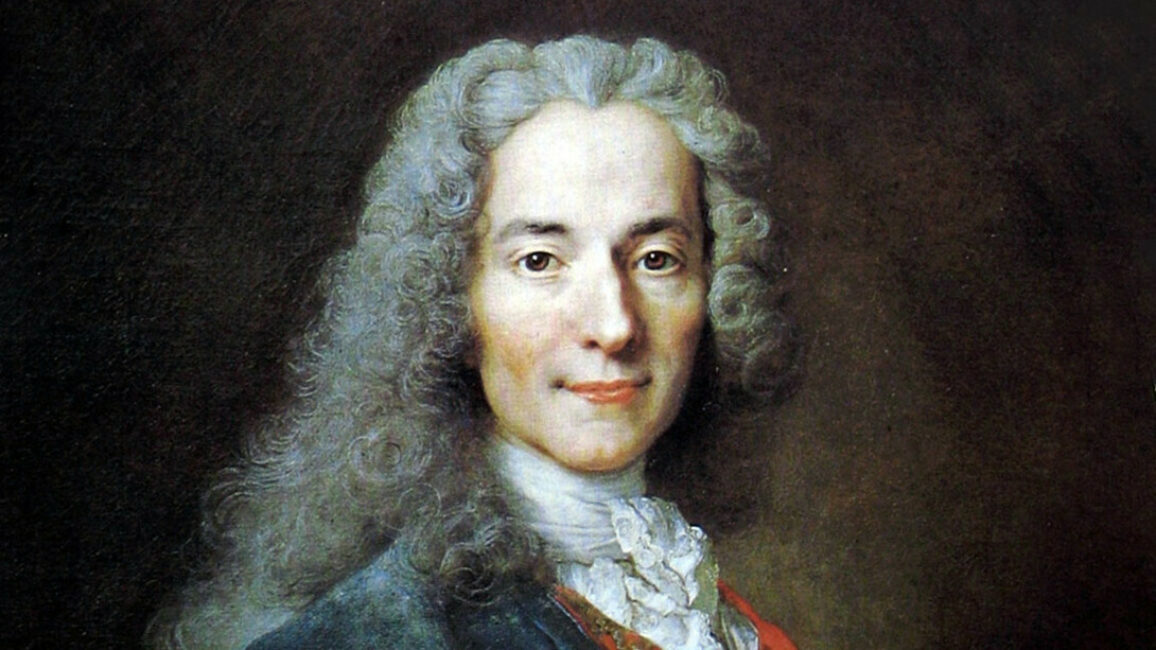Britain Versus France

Frenchman Voltaire preferred the intellectual views of England, to which he fled in 1726. (Alamy)
How much of a role do our senses play in knowledge? While we observe things directly and indirectly in experiments, perhaps we shouldn’t trust sensory knowledge—or so Frenchman René Descartes famously thought. He held a mechanical view of nature and of the human body; but he said knowledge is drawn from reason, the pinnacle of which depends on God.
British empiricist John Locke, by contrast, favoured the view that ‘all our ideas come to us via the senses’, a view which was shared by Scotsman David Hume. Similarly, Englishman Thomas Hobbes had already argued that ‘there is no conception in a mans mind, which hath not at first, totally, or by parts, been begotten upon the organ of Sense’. He thought philosophers got too lost in language.
The Brits were teaming up. Even Voltaire, Descartes’ compatriot, fled to England because he associated it with liberty of thought and scientific thinking. And in somewhat humorous fashion (insofar as philosophers are funny) he criticised Descartes’ view as follows:
Voltaire exaggerated the position of Descartes, who only argued for ‘innate ideas’, not actual knowledge in the womb. Still, Voltaire was right to find the essential point of difference between the likes of Descartes and Locke: they situated the raw materials of knowledge in completely different places.
This was an era of smack talk. Hobbes buried his own philosophical grave by attempting to besmirch others whilst advocating dodgy mathematics.
And people say Brits are polite.
Some afterthoughts
Is Descartes’ view really one of dualism? Descartes spoke of three distinct kinds (substances): mind (or soul), whose primary mode is thought; matter, which extends in space and of which body is; and God. The pineal gland connects mind and matter. Wait. What?!
Francis Bacon said there are three types of philosopher: ants, spiders, and bees. Empiricists, like ants, accumulate and use whatever they find. Rationalists, like spiders, spin webs. The bee is somewhere in between: ‘it takes material from the flowers of the garden and the field; but it has the ability to convert and digest them.’ We should be like the bee. (My analogies-are-black-magic senses are tingling.)
